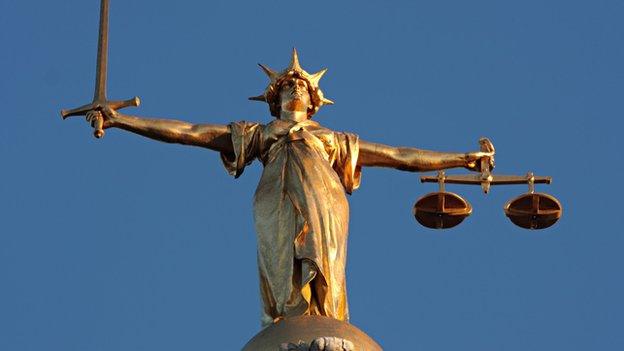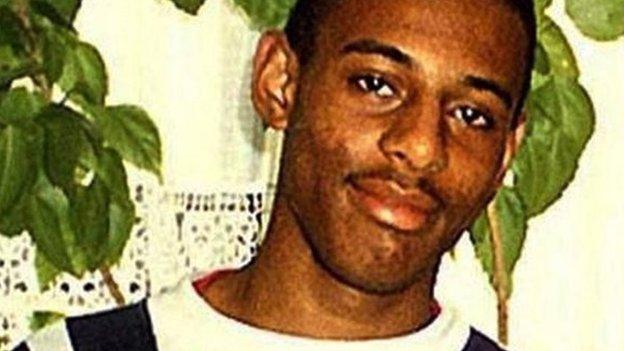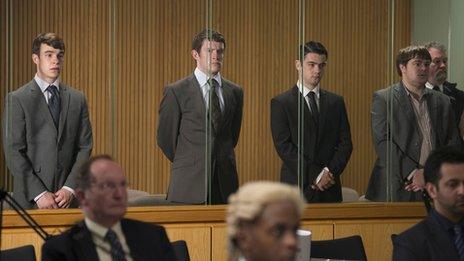Joint enterprise law review urged by Justice Committee
- Published

A law which allows several people to be prosecuted for murder even though they may have played different roles needs to be reviewed urgently, MPs have said.
The Justice Committee highlighted the use of the historic joint enterprise doctrine in recent cases involving gangs in England and Wales.
It suggests people who play a secondary role and do not encourage an attack should be charged with lesser offences.
The government says it will look at the MPs' report, external and respond in due course.
While the law of joint enterprise can apply to all offences, the MPs express concern over the way it has been used in murder trials against "minor players".
The doctrine is controversial and legal campaigners believe it allows individuals who may have had little involvement in the crime to be prosecuted for murder, an offence which carries a mandatory life sentence.
To get a conviction, prosecutors need only prove that a gang member could have foreseen that another person might inflict serious harm.
Successful prosecutions brought under the law include that of the killers of the Stephen Lawrence in 2011, more than 18 years after the black teenager was stabbed to death in south-east London.
But the mother of one of the three teenagers found guilty of murdering Garry Newlove in Warrington, who was attacked in August 2007 after he confronted a group outside his house, has campaigned against the law. Janet Cunliffe claims that although her son Jordan was present at the scene and convicted by a jury he did not take part in the attack.
Sending a signal?
The cross-party Justice Committee wants the government's law reform advisory body, the Law Commission, to examine the law.

The law was used in the prosecution of the teenagers for the murder of Garry Newlove
The committee also says that the Law Commission should consider the proposition that it should not be possible to charge with murder, but only with manslaughter or a lesser offence, secondary participants in joint enterprise cases who did not encourage or assist the perpetration of the murder.
Committee chairman Sir Alan Beith said there were clearly cases in which joint enterprise was necessary and a review would have to be handled carefully so as not to cause distress to victims and their families.
The committee's previous report, external on joint enterprise in 2012 prompted the director of public prosecutions to issue guidelines on the level of involvement needed for a murder charge.
Sir Alan said young men from ethnic minority communities were disproportionately represented among those convicted under the law and some witnesses to the inquiry suggested it had been used as a "dragnet" by the authorities.
Sir Alan said: "Some have argued that the doctrine has an important effect in deterring young people from getting involved in criminal gang activities, but others are sceptical about this.
"There is a real danger in justifying the joint enterprise doctrine on the basis that it sends a signal or delivers a wider social message, rather than on the basis that it is necessary to ensure people are found guilty of offences in accordance with the law as it stands."
Justice Minister Mike Penning said the law had enabled some of the most serious offenders to be brought to justice.
He added: "Sentencing in individual cases is a matter for the courts. We will look carefully at the Justice Committee recommendations and will respond formally in due course."
- Published1 April 2014

- Published24 April 2013

- Published6 July 2014

- Published18 January 2012
